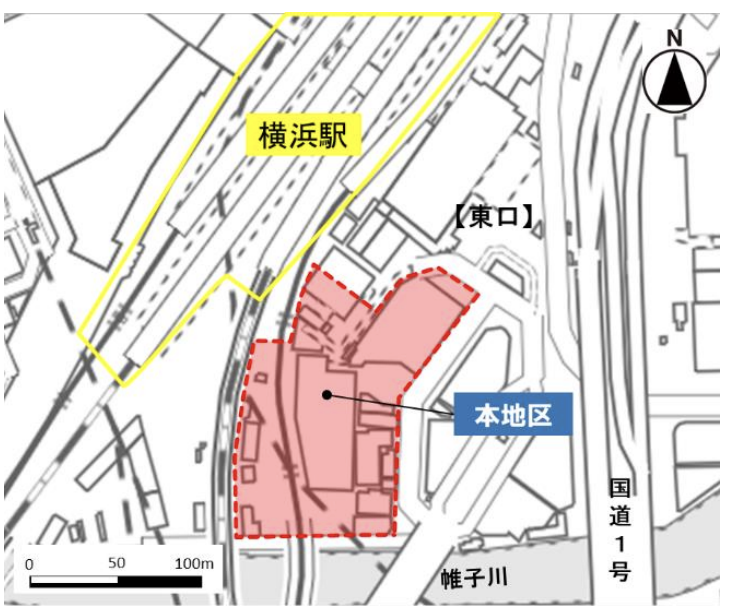For property owners, the relationship with a property management company is a critical factor directly linked to profitability and asset value. However, many owners are dissatisfied with their current management company's services, find management fees too high, or are struggling with prolonged vacancies.
As INA&Associates Co., Ltd., we have extensive experience in handling numerous property management company change cases. Based on this experience, we can confidently state that by following the appropriate procedures, it is possible to simultaneously improve profitability and enhance management quality.
In this article, we will provide practical, detailed information for property owners considering a change in property management companies, covering everything from the change process to breach of contract issues and notification methods for tenants.Changing property management companies is not a difficult process, but proper knowledge and preparation are key to success.
By reading this article, you will be able to alleviate any concerns you may have about changing property management companies and take the first step toward achieving better rental property management.
When should you consider changing your property management company?
The timing for considering a change in property management companies varies depending on the circumstances of the property owner. However, in general, the following situations indicate that it may be time to seriously consider changing property management companies.
When vacancies persist for an extended period
If a rental property has been vacant for three months or more, there may be issues with the management company's ability to attract tenants or its sales efforts. Even if the property is in a good location and in good condition, prolonged vacancies may indicate problems with the management company's tenant recruitment strategy or advertising efforts.
A competent management company can reduce vacancy periods by setting appropriate rent levels based on market analysis, implementing effective advertising strategies, and improving the quality of property viewings. The opportunity costs resulting from prolonged vacancies often far exceed the costs of changing management companies, making prompt action crucial.
If management fees are higher than the market average
Management fees for rental properties are generally around 3% to 5% of the monthly rent.However, some management companies charge fees exceeding 10%. It is important to objectively evaluate the balance between the services provided and the management fees, and if the fees are clearly higher than the market rate, consider changing management companies.
However, it is risky to make decisions based solely on low management fees. Some management companies may advertise low fees but provide poor service quality, so it is important to make a comprehensive assessment of cost-effectiveness.
If you are dissatisfied with the quality of management services
The quality of a management company's services is a critical factor in the success of rental property management. If the following issues occur frequently, it may be a sign that it is time to consider changing management companies.
If issues such as slow responses to tenant complaints or repair requests, inadequate collection of overdue rent, failure to conduct regular property inspections or cleaning, or frequent delays in submitting financial reports persist, it may indicate fundamental problems with the management company's operational structure.
Communication issues
Effective communication between property owners and management companies is essential for maintaining successful rental operations. If issues such as delayed communication from staff, failure to report important matters, or vague responses to questions or requests from property owners persist, it may be necessary to consider changing management companies.
In particular, if there are no regular reports on the condition of the property or tenant movements, it becomes difficult for property owners to make appropriate management decisions. Selecting a management company that can maintain transparent communication is key to the long-term success of rental property management.
Situation for considering a change Judgment criteria Urgency of response
Long-term vacancies Vacancies continuing for three months or more High
High management fees Significantly exceeding 5% of rent Medium
Decline in service quality Delayed response to complaints, delayed reports High
Lack of communication Delayed communication, missed reports Medium
Decline in occupancy rate Significantly below the average for the same area High
Specific steps for changing property management companies
Changing property management companies can be done smoothly by following the appropriate steps. Below, we will explain the specific steps for changing property management companies based on actual practice.
Step 1: Confirm the current property management contract
The first step in changing property management companies is to carefully review the contents of the current property management contract. The contract includes important terms such as the notice period for termination, the presence or absence of liquidated damages, and the contract period.
Many property management contracts set a notice period of one to six months for termination. If you request termination without adhering to this period, liquidated damages may apply.Additionally, the conditions may differ between terminating the contract mid-term and not renewing it at the end of the contract period.
When reviewing the contract, it is essential to focus on the following points: the length of the notice period for termination, the amount and conditions for liquidated damages, the presence of automatic renewal clauses, provisions regarding the handover of management duties, and the handling of deposits or guarantees.
Step 2: Selecting a new management company
After understanding the current contract terms, proceed to select a new management company. When selecting a management company, it is important to compare multiple candidates.
Criteria for selecting a management company include management performance and years of experience, reasonableness of management fees, content and quality of services provided, responsiveness and expertise of staff, financial stability, track record and methods of tenant recruitment, and emergency response capabilities.
In particular, companies with extensive management experience in the same area are familiar with the local rental market and can be expected to effectively recruit tenants and set appropriate rent levels. Additionally, companies with too many properties under management may not be able to provide adequate attention to individual properties, so it is important to select a company of moderate size.
Step 3: Notifying the Current Management Company of Termination
Once the new management company has been selected, formally notify the current management company of your intention to terminate the contract.It is recommended that the notice of termination be made in writing and sent by certified mail.
The notice of termination should clearly state your intention to terminate the contract, the desired termination date, the reason for termination (briefly stated), a request for cooperation in the handover, and your contact information. It is not necessary to provide detailed reasons for termination, but it is common to use a neutral expression such as “due to a change in management policy.”
After sending the termination notice, the current management company may attempt to retain your business. In such cases, it is important to remain calm and avoid emotional responses. Clearly communicate that the decision has already been made and request cooperation for a smooth transition.
Step 4: Handover between the new and old management companies
The most critical process in changing management companies is the handover of duties between the new and old management companies.
Insufficient handover may result in difficulties in responding to tenants or the loss of important information.
Items to be handed over include tenant information (contract details, contact information, special notes), rent collection status and information on delinquent tenants, deposit and security deposit status, repair history and future plans, details of insurance contracts, original copies of various contract documents, key management status, and a list of emergency contacts.
The handover should ideally be conducted with all three parties (owner, previous management company, and new management company) present. Ensure that all handover details are documented in writing to prevent future disputes.
Step 5: Notifying Residents
Once the change of management company is finalized, notify residents of the change. This notification directly affects residents' daily lives, so it must be prepared with care and clarity.
The notice should include the schedule for the management company change, the name and contact information of the new management company, changes to the rent payment account (if applicable), emergency contact information, other changes, and contact information for any questions.
The notice should be sent one to two months prior to the change date. Especially if the rent payment account is changing, it is important to provide sufficient notice to avoid confusion among tenants.
Step 6: Completion of Various Procedures
Finally, complete all procedures related to the management company change. This includes notifying financial institutions of the change, changing the name on insurance contracts, and confirming the transfer of various contracts.
Particularly important is the procedure for changing the rent collection account. If the new management company will handle rent collection, appropriate procedures must be taken to ensure that rent payments from tenants are transferred to the new account.
Additionally, procedures may be required for various insurance contracts, such as fire insurance and facility liability insurance, due to the management company change.Contact your insurance company to confirm the necessary change procedures.
Procedure Implementation period Time required Points to note
Confirm contract details Start reviewing changes 1 week Confirm details of cancellation conditions
Select new management company After deciding on the change 2-4 weeks Compare and evaluate multiple companies
Notify of cancellation After selection is complete Immediately Send formal notification in writing
Handover work After notification of cancellation 2-4 weeks Share detailed information
Notify tenants 1-2 months before the change 1 week Create a clear and easy-to-understand notice
Various procedures Before and after the change 2-3 weeks Ensure all procedures are completed without omission
Important information about penalties and fees
When considering changing property management companies, many property owners are most concerned about penalties and fees associated with the change. Having the appropriate knowledge can help you avoid unexpected expenses and make a planned change.
Cases where penalties apply
The occurrence of penalties is primarily determined by the terms of the property management contract. Common cases where penalties apply include termination during the contract period, failure to comply with the notice period for termination, and termination under specific conditions.
Many property management contracts have a contract period of 2 to 3 years, and penalties typically apply if the contract is terminated during this period.Additionally, if the notice period for termination is set at 3 to 6 months, failing to comply with this period may result in being charged a penalty fee equivalent to the management fee for the remaining period.
It is particularly important to note that unscrupulous management companies tend to set high penalty fee clauses. If the penalty fee is set at a high amount, such as 6 or 12 months' rent, thorough consideration is necessary at the time of signing the contract.
Typical liquidated damages
The typical amount of liquidated damages varies significantly depending on the contract terms and the management company, but it is generally considered to be between one and three months' rent.
In the case of reputable management companies, no liquidated damages are typically charged if the contract is terminated at the end of the term, and even if the contract is terminated early, the amount is often set at around one month's rent. On the other hand, some management companies may set high liquidated damages, such as six months' rent or the equivalent of the annual management fee.
The calculation criteria for breach of contract fees may include a certain number of months' worth of monthly management fees, a certain number of months' worth of rent income, or a certain percentage of the annual management fee. When reviewing the contract, be sure to confirm these calculation criteria and the specific amounts.
Other change-related expenses
When changing property management companies, various other expenses may arise in addition to breach of contract fees.
Main change costs include initial fees for the new management company, various procedure fees, handover work fees, and costs for creating and mailing notification letters.
When signing a contract with the new management company, you may be required to pay contract processing fees or deposit a security deposit. Additionally, costs for creating and mailing notification letters to tenants, as well as fees for preparing various contract documents, may also apply.
Furthermore, changing management companies may require reviewing fire insurance or changing the guarantee company, which may also incur additional costs.
Ways to reduce costs
To minimize the costs associated with changing property management companies, a planned approach and appropriate timing are essential.
The most effective method is to make the change at the end of the contract period. This completely avoids the occurrence of termination fees. By starting preparations six months prior to the contract expiration date, you can take sufficient time to select a new property management company.
Additionally, it is important to obtain quotes from multiple property management companies and compare initial costs and management fees.Some management companies may offer campaigns to waive initial fees to encourage switching from other companies.
Furthermore, through negotiations with the current management company, it may be possible to reduce penalty fees or arrange installment payments. Maintaining a good relationship while conducting constructive discussions is important.
Cost Items Average Cost Conditions for Occurrence Cost-Saving Methods
Penalty Fee 1-3 months' rent Termination during the contract period Change at the end of the contract term
New management company initial fees 0–100,000 yen At the time of signing a new contract Utilize campaigns
Administrative fees 1–50,000 yen At the time of various procedures Negotiate for lump-sum processing
Notice preparation fees 1–30,000 yen At the time of notifying tenants Prepare in-house
Insurance change fees 1–50,000 yen At the time of changing insurance contracts Utilize existing contracts
Handover fees 0–50,000 yen At the time of business handover Conduct detailed prior preparation
Notification Methods and Considerations for Tenants
When changing management companies, proper notification to tenants is a legal obligation and essential for a smooth transition. Insufficient notification methods or content may lead to disputes with tenants.
Timing of Notification
Notification to tenants should be made one to two months prior to the management company change date. Especially when the rent payment method changes, tenants require sufficient time to prepare for the new payment arrangements.
If notifications are sent too late, residents may become confused, leading to mistakes in rent payments or an increase in inquiries. On the other hand, if notifications are sent too early, residents may forget the contents of the notification. Notifying residents at the appropriate time will help ensure a smooth transition.
Additionally, notifications should be distributed or mailed during weekday business hours to ensure that residents receive them reliably.
Contents of the Notification Letter
It is important to clearly and accurately include all necessary information for residents in the notification letter.
Mandatory information includes the schedule for the management company change, the reason for the change (concise), details of the new management company, changes to contact information, changes to the rent payment destination, changes to emergency contact information, and other important changes.
Details of the new management company should include the company name, address, phone number, fax number, email address, business hours, and contact person. It is particularly important to clearly state whether emergency contact information is available 24 hours a day.
If the rent payment destination changes, accurately record the new bank name, branch name, account type, account number, and account holder's name, and clearly state who is responsible for any transfer fees.
Rent Payment Destination Change Procedures
Changing the rent payment destination is one of the most important changes for tenants. To ensure a smooth change process, please note the following points.
The new transfer information should be checked multiple times to ensure there are no errors, and it is recommended to attach a copy of the transfer account passbook if possible. In addition, clearly indicate the effective date of the change and clearly display the transfer destination before and after the effective date.
For tenants using automatic transfers, explain that changes must be made at the financial institution and provide advance notice considering the time required for the procedure.
Regarding transfer fees, clarify whether the previous method will continue or if there will be any changes. If the tenant's burden increases, it is important to explain this in advance and obtain their consent.
Responding to tenant inquiries
After notifying tenants of the management company change, it is expected that various questions and concerns will be raised. By responding appropriately, you can alleviate tenants' concerns and maintain trust.
Common questions include: “Why is the management company being changed?” “Will the services change?” “Will the rent or contract terms change?” “What will happen to the security deposit?” “Will emergency response be handled properly?”
It is important to prepare answers in advance and provide consistent explanations. In particular, clearly communicate that there will be no changes that are disadvantageous to residents and explain that the changes are aimed at improving services.
During the transition period, ensure that both the new and old management companies are available to address questions to prevent confusion among residents.
Special considerations for residents requiring special care
For residents requiring special care, such as the elderly or foreign residents, more detailed explanations and considerate responses are necessary.
For the elderly, enlarge the text in notification documents and highlight important sections. If necessary, consider providing explanations over the phone or contacting family members.
For foreign residents, we will create notices in their native language whenever possible or provide explanations in simple Japanese. It is also important to provide detailed explanations to avoid misunderstandings due to cultural differences.
Notice items, content, and注意事项
Change schedule: Specific date and time, ensuring sufficient preparation time
New management company information: Company name, contact information, business hours, accurate information
Bank transfer details: Bank name, account number, account holder name, multiple confirmation procedures
Emergency contact information Availability of 24-hour support Clear indication of response times
Changes to contract terms Clarification of any changes to terms and conditions to alleviate tenant concerns
Contact information for inquiries Contact details and response times Establishment of a swift response system
Advantages and disadvantages of changing property management companies
When considering a change in property management companies, it is important to objectively evaluate the advantages and disadvantages and make a comprehensive decision. By understanding the expected benefits and potential risks in advance, you can make a better decision.
Advantages of changing management companies
Reduction in management fees
One of the most direct advantages of changing management companies is the reduction in management fees. If the current management company's fees are higher than the market rate, changing to a management company with appropriate fees can result in annual savings of tens to hundreds of thousands of dollars.
For example, if the monthly rent is $50,000 and the management fee is reduced from 8% to 4%, the annual savings would be $24,000.This reduction effect is a significant long-term benefit, even when considering the initial costs of switching.
However, it is important to consider the balance between the cost of management fees and the services provided, rather than simply pursuing the lowest fees.
Improved service quality
Switching to a high-quality management company can lead to improved management service quality. Specifically, this includes faster response times to tenant inquiries, regular property inspections, appropriate repair recommendations, and detailed financial reports.
High-quality management services lead to increased tenant satisfaction, which in turn reduces turnover rates and promotes long-term tenancy. Additionally, proper maintenance of the property helps preserve its asset value.
Vacancy Improvement and Profitability Enhancement
Switching to a management company with strong tenant acquisition capabilities can help reduce vacancy periods and improve occupancy rates. Effective advertising strategies, appropriate rent setting, and high-quality property showings can help mitigate vacancy risks.
Furthermore, an excellent management company has an accurate understanding of market trends and can provide timely rent adjustment proposals and renovation suggestions to enhance property value.
Improved Communication
Building a relationship with a new management company improves the quality of communication with property owners. Regular reports, prompt responses, and transparent information sharing allow property owners to entrust their rental management with peace of mind.
Disadvantages of changing management companies
Procedural hassle and time
Changing management companies requires a significant amount of time and effort. Tasks such as selecting a new management company, reviewing contracts, conducting handover procedures, and notifying tenants must be completed.
This burden is particularly heavy for property owners with multiple properties or a large number of tenants. Additionally, during the transition period, coordination with both the old and new management companies is necessary, temporarily increasing the property owner's workload.
Temporary Disruption and Risks
During the transition period, there is a possibility of temporary disruption. This may include an increase in tenant inquiries, mistakes in rent payments, or delays in emergency responses.
Additionally, if the handover is insufficient, there is a risk of losing important information or encountering issues with tenants. To minimize these risks, thorough preparation and planning are essential.
Costs
Changing property management companies may incur costs such as penalty fees and various procedural expenses. In particular, changing during the contract period may result in high penalty fees.
Additionally, initial costs for the new management company, various procedural expenses, and notification document creation fees must also be considered. Careful calculations are necessary to ensure that these costs do not outweigh the benefits gained from the change.
Risk of Insufficient Capabilities of the New Management Company
There is also a risk that the new management company may not deliver the expected results due to insufficient capabilities. Even if the company makes a good impression during preliminary investigations or interviews, its actual management performance may fall short of expectations.
To mitigate this risk, it is important to conduct thorough research when selecting a management company and carefully verify its track record and reputation. Additionally, establishing a system to set clear performance metrics and conduct regular evaluations during the contract period can be effective.
Item Benefits Drawbacks
Cost Management fee reduction Change costs/penalties
Service quality Faster response/improved quality Risk of temporary service decline
Vacancy countermeasures Improved tenant attraction/vacancy reduction Delays in response during transition period
Communication Improved reporting/transparency Time required to build relationships with new staff
Procedures Opportunity to review contract terms Complex procedures and time burden
Risk management Improvement of management system Risk of new management company's lack of capability
How to choose a new management company
Selecting a rental management company is an important decision that will determine the success of your rental business. By establishing appropriate selection criteria and carefully comparing multiple candidates, you can find a partner that will satisfy you in the long term.
Verify management performance
The first step in selecting a management company is to verify its management performance and experience. Conduct a detailed investigation of the number of properties managed, years of experience, performance in the same area, and experience managing similar properties.
Particularly important is management experience in the same area as the owned properties. A management company familiar with the local rental market can provide appropriate rent setting, effective tenant recruitment, and management methods tailored to regional characteristics.
Additionally, the number of managed properties should be moderate, neither too many nor too few. Companies with too many properties may struggle to provide adequate attention to individual properties, while those with too few may lack experience and expertise.
Comparing management fees
It is important to evaluate management fees based on cost-effectiveness rather than simply the lowest price. Consider the level of management fees, alignment with the scope of services provided, the presence of additional fees, and payment terms.
The general range for management fees is approximately 3% to 5% of the rent, but the appropriate level may vary depending on the services provided. Some companies may advertise low fees but charge additional fees for many services, so it is essential to review the contract details carefully.
Additionally, it is important to confirm in advance any additional costs such as initial fees, renewal fees, advertising costs, and maintenance arrangement fees, and compare the total costs.
Evaluation of Service Content
We evaluate the services provided by the management company in a specific and detailed manner. This includes methods for tenant recruitment, rent collection, complaint handling, maintenance arrangements, regular inspections, and financial reports, among other tasks.
Particularly important are the tenant recruitment methods and track record. Specifically confirm the use of internet advertising, the number of affiliated real estate companies, the quality of property viewings, and the closing rate. Additionally, whether there is a 24-hour emergency contact system is an important evaluation point.
Regarding financial reports, review sample reports to evaluate whether the necessary information is appropriately included and presented in an easy-to-understand format.
Responsiveness of staff
The expertise and responsiveness of the property management company's staff directly affect the quality of daily management operations. We comprehensively evaluate the staff's responsiveness during the initial meeting, the accuracy of their answers to questions, the specificity of their proposals, and their communication skills.
Excellent staff understand the characteristics of the property and can make specific proposals based on market trends. It is also important that they accurately understand the owner's requests and have the ability to report and consult at the appropriate time.
We also check the representative's years of experience, qualifications, and past performance to determine whether they are a reliable partner.
Financial soundness
The financial soundness of the management company is an important factor in maintaining long-term business relationships. We confirm basic information such as the company's year of establishment, capital, sales, and number of employees.
Of particular importance is the management system for security deposits and guarantees. It is necessary to confirm that these funds are properly segregated and that measures are in place to protect them in the event of an emergency.
Membership in industry associations, insurance coverage, and compliance systems are also evaluation points.
Tenant recruitment performance and methods
Vacancy prevention is an important element of rental management, and the tenant recruitment capabilities of the management company must be carefully evaluated.We review specific data such as past lease agreements, average vacancy periods, and occupancy rates.
We also examine recruitment methods in detail. This includes evaluating the company's presence on major portal sites, the quality of its website, social media utilization, and collaboration with partner real estate companies.
Additionally, photography skills to highlight the property's appeal, the ability to create compelling property descriptions, and the skills of staff during property tours are important evaluation points.
Emergency response system
In rental management, the emergency response system significantly impacts tenant satisfaction. We thoroughly verify whether 24/7 support is available, the scope of emergencies that can be addressed, estimated response times, and communication protocols.
We confirm the established response procedures for common emergencies such as water leaks, power outages, lost keys, and equipment malfunctions. Additionally, collaboration with service providers and clarity regarding cost allocation are important factors.
The quality of emergency response directly impacts residents' sense of security and satisfaction, and can also contribute to promoting long-term residency.
Selection Criteria Check Items Evaluation Points
Management Track Record Number of managed units, years of experience, performance in the same area Appropriate scale and extensive experience
Management Fees Commission rate, additional fees, payment terms Reasonableness of cost-effectiveness
Service Content Recruitment methods, scope of services, reporting system Specific and comprehensive content
Staff Specialized knowledge, responsiveness, experience Reliable personnel
Financial status Company size, financial management, insurance Sound and stable operations
Recruitment ability Track record of successful placements, advertising methods, partnerships Strong ability to attract tenants and high placement rate
Emergency response 24/7 availability, scope of response, contact information Swift and reliable response system
Summary
Changing property management companies is not a difficult process if you have the right knowledge and preparation. By following the steps and considerations outlined in this article and proceeding systematically, you can achieve better property management.
Key Points for a Successful Management Company Change
The following points are crucial for a successful management company change.
Thorough preparation is the most important factor. The key to success is to allow sufficient time for preparation, including confirming the details of the current contract, clarifying the reasons for the change, and setting criteria for selecting a new management company.
Comparing multiple candidates allows you to select the most suitable management company. It is important to evaluate not only management fees but also service content, track record, and the quality of staff, and make a decision from a long-term perspective.
Smooth communication is essential for maintaining good relationships with both the new and old management companies and ensuring a smooth transition. In particular, providing detailed explanations and responsive support to tenants helps maintain trust.
Timing is also critical. Changing management at the end of the contract period or avoiding peak seasons can help avoid unnecessary costs such as breach fees. Consider strategic timing based on your specific circumstances.
Long-term perspective
Changing management companies should not be done solely for short-term cost reduction, but with the goal of improving long-term rental management. By working with an excellent management company, you can expect to see improvements in vacancy rates, tenant satisfaction, and property value maintenance and enhancement.
In addition, since the relationship with the management company will continue for a long period of time, it is important to select a reliable partner. Do not skimp on temporary costs or effort, and select a management company that you can trust for the long term.
Next steps
If you are considering changing property management companies, we recommend the following steps.
- Confirm the current contract details: Carefully review the property management contract to understand the termination conditions and penalties.
- Clarify the reasons for the change: Clearly define why the change is necessary and what improvements you wish to achieve.
- Compile a list of candidate property management companies: Select multiple property management companies as candidates and compare them.
- Request meetings and proposals: Meet with the candidate property management companies and request specific proposals.
- Comprehensive evaluation: Evaluate costs, services, and performance comprehensively to select the most suitable management company.
INA&Associates Co., Ltd. provides consultation services for changing rental management companies. We support the success of our clients' rental management businesses by leveraging our extensive experience and expertise. Please feel free to contact us if you are considering changing your management company.
By working with the right management company, you can achieve a more profitable rental management business and maximize the value of your assets.
Frequently Asked Questions
Q1: How long does it take to change property management companies?
A1: The process typically takes approximately 2 to 4 months. The specific schedule is as follows:
2 to 4 weeks for selecting a new management company, 1 to 3 months (depending on the contract) from notifying the current management company of termination to actual termination, and approximately 2 to 4 weeks for handover procedures.
If the change is made at the end of the contract period, you can avoid penalty fees and proceed more smoothly. By allowing sufficient time, you can avoid issues and ensure a smooth transition.
Q2: Is tenant consent required?
A2: Tenant consent is not legally required for changing property management companies. The decision to change property management companies is the owner's business judgment.
However, prior notice to tenants is mandatory, and it is important to explain the changes thoroughly.In particular, changes to rent payment methods or emergency contact information directly affect residents' lives, so it is necessary to provide sufficient notice and preparation time.
To maintain good relations with residents, it is effective to explain the reasons for the change concisely and communicate that the change is intended to improve services.
Q3: What happens to the contract with the guarantee company?
A3: The contract with the guarantee company may be affected by the change in management company.If the management company serves as the point of contact for the guarantee company, a review of the guarantee contract may be necessary.
If the new management company is affiliated with the same guarantee company, the contract may be continued. However, if a different guarantee company is used, changes to the guarantee contract or a new contract may be required.
It is important to confirm this with the new management company during the consideration phase of the management company change and explore ways to minimize the impact on residents.
Q4: What should be done if issues arise after the change?
A4: If issues arise after changing management companies, it is important to respond quickly and calmly.
First, accurately identify the nature and cause of the issue and request specific improvements from the new management company. Compare the issues with the performance metrics and scope of services outlined in the contract, and formally request improvements if there are any contract violations.
If no improvements are made, terminating the contract may be necessary. However, since changing management companies again can be a significant burden, it is most important to carefully select the new company beforehand.
To prevent issues from arising in the first place, it is effective to establish clear business content and performance metrics at the time of contract signing and implement a system for regular evaluations.
Q5: Are there ways to minimize the costs of changing property management companies?
A5: To minimize the costs of changing property management companies, a planned approach and appropriate timing are crucial.
The most effective method is to change companies at the end of the contract term to avoid termination fees. Additionally, obtaining quotes from multiple management companies and comparing initial costs and management fees is important.
Some management companies may offer campaigns with waived initial fees to encourage switching from other companies. Additionally, negotiating with the current management company may allow for reductions in termination fees or installment payments.
Furthermore, handling tasks such as creating notification letters for residents and various procedures in-house can help reduce external outsourcing costs.

Daisuke Inazawa
Representative Director of INA&Associates Inc. Based in Osaka, Tokyo, and Kanagawa, he is engaged in real estate sales, leasing, and management. He provides services based on his extensive experience in the real estate industry. Based on the philosophy that “human resources are a company's most important asset,” he places great importance on human resource development. He continues to take on the challenge of creating sustainable corporate value.

.png)













